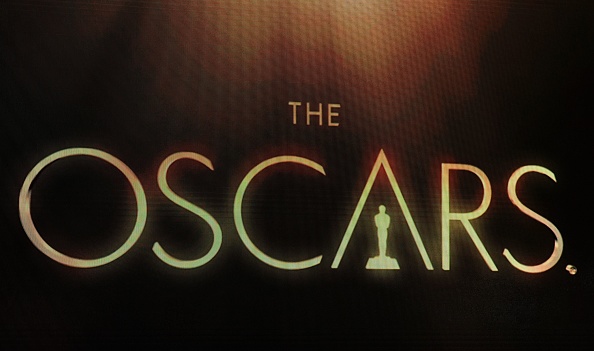
THE 95th Academy Awards was a significant night for Asian representation in films with a few firsts, including the first Asian woman to win best actress and the first Oscar wins for Indian movies.
In her performance as Evelyn Quan Wang in “Everything Everywhere All At Once” (EEAAO), Michelle Yeoh created cinematic history. The film dominated by winning seven Oscars in all, including the Oscar for best picture and best-supporting actor for co-star Ke Huy Quan.
With “Naatu Naatu” winning the Oscar for the best original song, the historical fantasy film “RRR” in the Telegu language became the first Indian feature film to get the honour.
“The Elephant Whisperers” won the Oscar for the best documentary short film this year, giving India yet another Oscar.
Yeoh’s victory makes her the second woman of colour to win the Oscar for best actress and the first woman of Asian origin to do so. Yeoh received her Oscar from actress Halle Berry, the only other person of colour to win best actress.
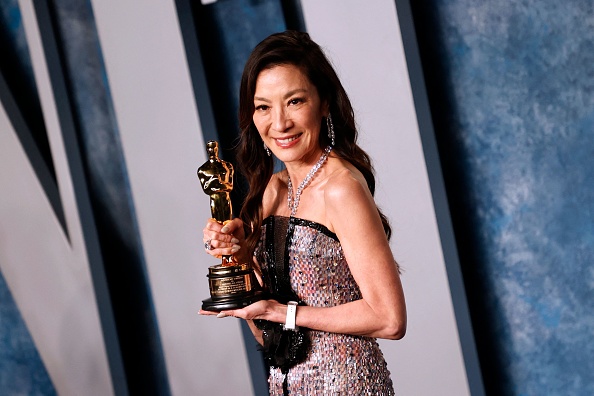
Also, she is the first person of Asian origin to win in a lead acting category, the fifth person of Asian descent to win in any acting category, and the first actress to win for portraying a character who speaks both Mandarin Chinese and Cantonese.
“For all the little boys and girls who look like me watching tonight, this is a beacon of hope and possibilities,” she said holding her statue aloft.
Michelle Yeoh also thanked her own mother. “I have to dedicate this to my mom, all the moms in the world because they are really the superheroes, and without them, none of us would be here tonight.”
Yeoh was one of four Asian actors who received an Oscar nomination this year, a record.
Yet not every Asian winner hailed from EEAAO. The first woman of Asian ancestry to win for cosmetics and hairstyling was Judy Chin, the head of The Whale’s makeup department (legendary Japanese special effects makeup artist Kazu Hiro remains the only Asian man to have won in the category). With two ladies and two men winning in two categories, India had a pretty successful night at the Academy Awards (bigger than Ireland, given The Banshees of Inisherin’s shutout).
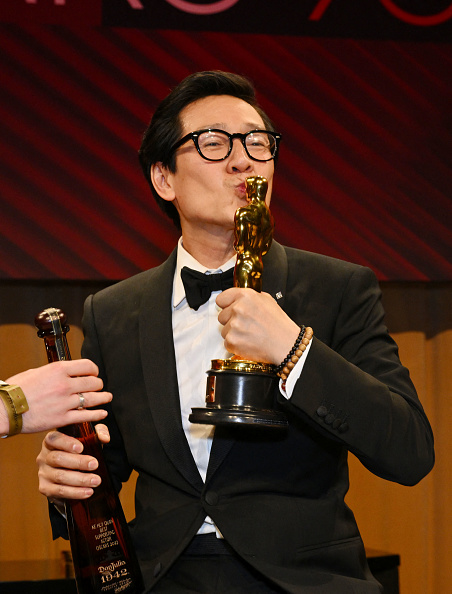
Ke Huy Quan, who played her co-star in “Everything, Everywhere, All at Once,” also took home the Oscar for best-supporting actor and made Oscar history by playing the first Mandarin-Chinese and Cantonese-speaking character.
The award for “Naatu Naatu” as best original song made “RRR” the first Indian feature film to get an Oscar.
With “Jai Ho” from “Slumdog Millionaire,” A.R. Rahman, an Indian composer had previously taken home the Oscar for best original song, but that movie was mostly a British production.
A showcase for Tollywood, one of India’s non-Bollywood film companies that concentrate mostly on Telegu language productions rather than Hindi films, “RRR” is an Indian production through and through.
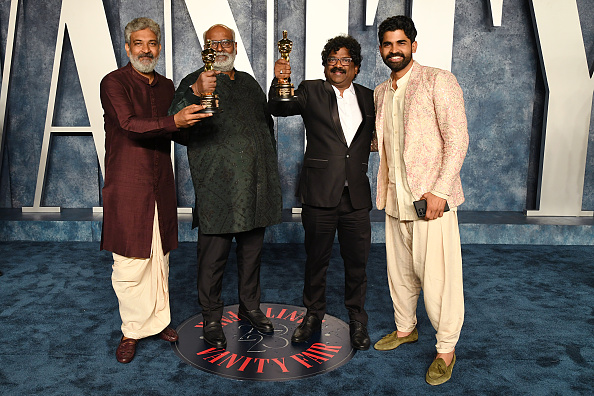
M.M. Keeravani composed the winning song, with lyrics written by Chandrabose.
Lyricist Chandrabose, said: “The only thing running in my mind presently is I have to go to India to show this honor to my wife and children.”
“Naatu Naatu” beat both Lady Gaga’s “Hold My Hand,” from “Top Gun: Maverick,” and Rihanna’s “Lift Me Up” from “Black Panther: Wakanda Forever.”
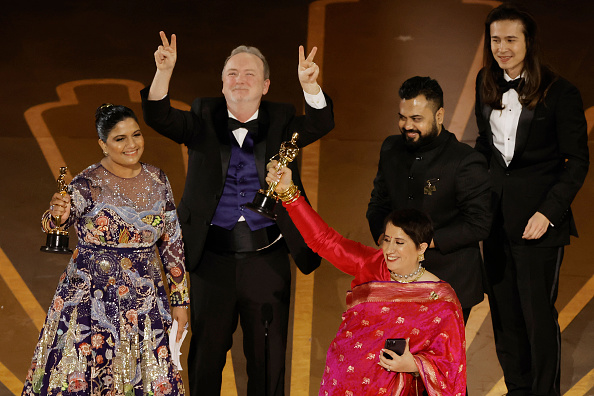
“I stand here today to speak for the sacred bond between us and the natural world, for the respect of Indigenous communities and empathy toward other living beings we share space with,” said The Elephant Whisperers director Kartiki Gonsalves, who with producer Guneet Monga became the first Indian Oscar recipients for documentary short (Monga, among the first Indian producers to be inducted into the Academy, was previously an executive producer for the 2020 winner, Period. End of Sentence.). “To my motherland, India.”